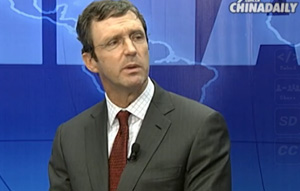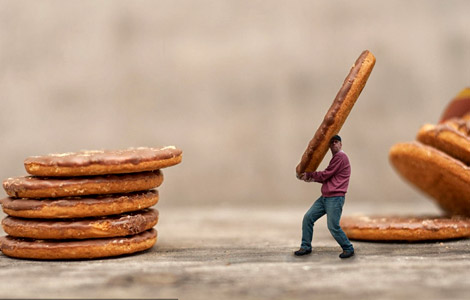Testing times ahead for TCM
Updated: 2013-11-22 10:31
By Li Yun (China Daily Europe)
|
|||||||||||
Local alliances can help Chinese companies overcome some of the regulatory hurdles in Europe
Though the European Union came out with a directive that governs the sale and purchase of herbal medicines in 2004, it has been more of a detriment, rather than aid, for traditional Chinese medicine in Europe.
The system's faults are clearly evident from the fact that despite its widespread popularity, TCM is not considered to be traditional medicine. Some sections of the Chinese press have indicated that the EU directive is in fact a trade barrier for TCM's development in Europe. However, it is more of a mismatch between Western standards and Chinese medicine.
Issues for TCM became complicated in the UK earlier this year, after the Medicines and Healthcare products Regulatory Agency of the UK urged the public to stop buying unregistered herbal products, citing safety concerns. The regulator is also believed to be considering a ban on the sale of all unlicensed herbal products in the UK from next year.
However, the MHRA's actions are against unregistered drugs, including patent Chinese drugs, but not against TCM as a whole.
When the EU announced its herbal drug directive in April 2004, it said that all botanicals would enjoy a transitional period of seven years in the European markets, after which they have to be registered. From April 2011, all unregistered products, including TCM, cannot be imported into the EU market, it said.
The EU had indicated that the herbal drug directive aims to provide a unified system of standards and regulations across all the 28 member nations. The MHRA statement, however, is UK-specific and pertains to just some sections of TCM, and does not represent the views of all EU nations.
The EU directive, on the other hand, includes not only TCM, but other types of herbal medicines also. According to the European Chamber of Commerce for Traditional Chinese Medicine, the EU herbal medicine market is estimated to be about 19.4 billion euros ($26 billion), with more than 1,270 kinds of herbal medicines in circulation. More than 60 percent of the European population have used herbal medicines, mostly home-grown botanicals.
Products imported from South America and Africa undergo strict supervision and are mostly made by the big drug makers in Europe. Many of the products, including raw materials, are also subject to strict technical checks after entering the EU customs.
If TCM wants to make its mark in Europe, it is important for Chinese companies to find local partners as they are familiar with local rules and regulations.
Unlike Western medicines, the complexity of Chinese medicines makes it difficult to isolate the specific ingredients. It is this aspect that has prevented Chinese medicines from being certified in Europe.
Many Chinese companies have taken the easier option of registering TCM products as food or food supplements. As a result, many Europeans now treat TCM as food rather than medicine. They believe it is pharmacologically innocuous as it should be, and you can freely take it. However, both Chinese and Western medicine streams involve prescription drugs and taking them blindly could prove harmful.
Overall, TCM has not fared well in exports. In 2012, the TCM industry was valued at 515.6 billion yuan ($84.6 billion; 62.6 billion euros), but exports accounted for just 16 billion yuan.
According to a report issued by the Nanjing University of Chinese Medicine last year, more than half of the herbal medicine consumers in Western countries such as France, Germany and the UK have used TCM or other treatments.
The European market accounted for 47 percent of the global market for herbal medicines. Since the EU involves 28 countries and a total population of more than 500 million, losing market share would mean sizable export losses for Chinese companies. Coupled with this is the fact that, since 2004, only one single extract of Chinese medicine, which is not even a traditional drug, has been registered in the Netherlands.
The main reason why Chinese enterprises cannot go through the registration process is because TCM has a limited share in the European healthcare market. As a result companies do not have sufficient technical evidence or the requisite capital for getting qualified. Chinese companies also need to spend huge amounts as registration fees.
If the drug matches up to local requirements, there will not be any additional costs. However, it is very likely that TCM with its complex ingredients may not match up to the local standards, and this in turn would lead to additional expenditure.
Since the directive was signed in 2004, there has been mixed progress among the EU member nations on its implementation. Germany was the first country to make registration of traditional medicine mandatory. The UK has the most registered traditional medicines, with more than 20 drugs.
Registered traditional medicines are mostly single herbs and European traditional medicines, but there are also some compounds and non-traditional medicines. For example, the first non-traditional medicine - Klosterfrau Melisana - registered in the EU contains balsam grass, ginger, cloves and other ingredients. Chinese companies can learn from the success of these non-traditional and compound medicines.
Since there are different regulations in the various EU nations, Chinese enterprises can find the markets with regulations that best suit their products. Nations like the Netherlands have a relatively relaxed regulatory regime.
Chinese medicinal decoctions and single flavor granules can still be sold in the EU as food or food supplements. Chinese patent drugs may be the real breakthrough for TCM in Europe as it is easy to identify the ingredients and production procedures are similar to Western medicines. Its export volume last year was about $270 million.
The author is a professor at Nanjing University of Chinese Medicine.
(China Daily European Weekly 11/22/2013 page11)
Today's Top News
Premier Li heads west on opening-up tour
Deal reached in Iranian nuke talks
Roar of the East being heard
New air zone in line with practice
UN talks agree on major principles for climate pact
China maps out air defense ID zone
Nokia has 'phab' plan for Chinese mobile market
Newtown investigation report to be released
Hot Topics
Lunar probe , China growth forecasts, Emission rules get tougher, China seen through 'colored lens', International board,
Editor's Picks

|

|

|

|

|

|





